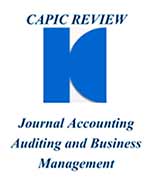Published 2015-12-10
Keywords
- Employability,
- Job Placement,
- Professional skills
How to Cite
Abstract
Among the objectives formulated in the Bologna Declaration (1999), and in this case, been axis on which the new educational paradigm in higher education is based, it is: “Develop academic, competence and professional qualification criteria to answer the labor market demand the and let respond to the current educational, labor and social challenges”. The Berlin Conference (2003), emphasizes the employability of graduates. The Bergen Conference (2005), points out that to improve the employability of graduates, it is necessary to strengthen the dialogue between employers and social agents.
Following the constant changes generated in the profession and the need to adapt to them permanently constant evaluation of the skills and knowledge of professionals in the area of the audit is necessary. This research makes an analysis of the evaluation of the demands of market, profesional skills for employment and remuneration of the graduates from the Accountancy program in the city of La Serena, in order to provide updated information on employability factors, as useful input to the orientation of the study programs, mobilizing the brainpower and aligning it to what socio-economic actors demand.
The study sets a mixed perspective. The qualitative trait manifests by obtaining information of the graduates of audit considered like strategic actors, in this case graduates by subjective perceptions and visions that those delivered, while the quantity is expressed in terms of the analysis of data obtained by implementing an insertion surveym l’Agència per a la Qualitat from the System of University of Catalonia (AQU).
The investigation allowed to identify the most valued skills according to the market for recent graduates of Accountancy, and provide the confirmation of the importance of personal characteristics, as a factor in employability. It was determined the existence of a relationship between skills, performance category and level of remuneration, same as the determination of the assessing on quality of work.
Downloads
References
2. Barraycoa Martínez, J. y Lasaga Millet, O., (2010), Competencias e inserción laboral: un análisis de la empleabilidad en los recién licenciados en Ade y Economía. Madrid: CEU Ediciones.
3. Ducci, María Angélica (1996). “El enfoque de competencia laboral en la perspectiva internacional”, en Formación basada en competencia laboral. Situación actual y perspectivas. Seminario Internacional, OIT/CINTERFOR/CONOCER. Guanajuato 23-25 de mayo, pp.15-26.
4. Espacio Europeo de Enseñanza Superior. Declaración conjunta de los Ministros europeos de enseñanza. Declaración de Bologna. Italia, 1999.
5. González, E. Alfaro, M. Cortés, P. Hernández S. (2012), “Competencias requeridas por el contador auditor, en función a los cambios experimentados por la profesión”, CAPIC REVIEW Vol. 10 (1): 53-62, 2012.
6. Kinnear, Thomas y Taylor, James, (2010) Investigación de Mercados, México, McGraw-Hill, 1993.
7. Lasaga, O. y Barrycoa, J. (2010); “Competencias profesionales y empleabilidad: la inserción laboral de los licenciados en publicidad y RR.PP”; Universitat Abat Oliba Ceu”; Madrid: CEU Ediciones.
8. Marques, J. (2001). “Nuevas tendencias en la auditoría”, Octubre-Diciembre, Contaduría y Administración N°203, 37- 44.


































